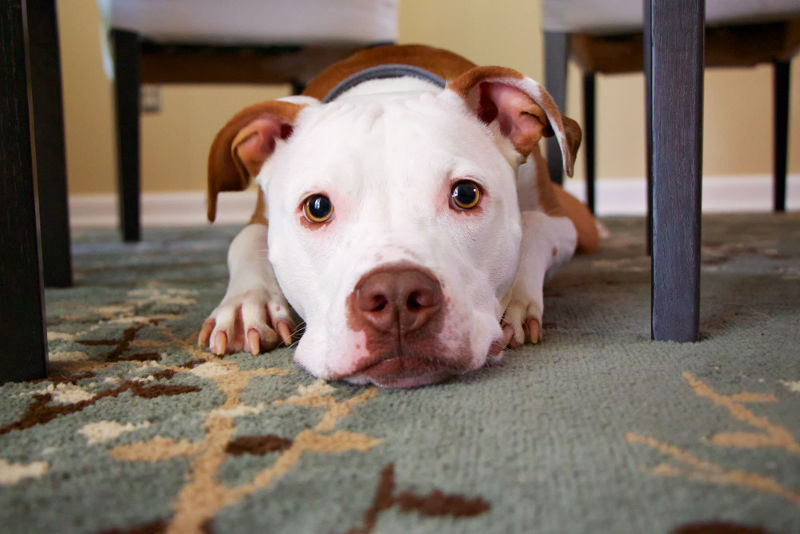Urinary tract infections are the most common infectious disease in dogs, affecting 14% of dogs throughout their lifetime.
Urinary tract infections, or UTIs, are common among canines. Dogs suffering from a UTI may try to urinate in small frequent bursts when they go outside for a bathroom break. You may also see your dog straining to urinate, whimpering, or crying out in pain like Tom Hanks in The Green Mile. In more severe cases, your dog may have blood in their urine. While UTIs start off as uncomfortable, they can quickly become dangerous if not treated promptly by a veterinarian.
Symptoms of a UTI can also be synonymous with other conditions, such as bladder cancer, kidney stones, poisoning, and more. If your pet shows any of the symptoms described, have them checked out as soon as possible just to be safe.
While 14% of dogs will experience a UTI at least once in their lifetime, female dogs are at significantly greater risk than their male counterparts. However, if your dog has a history of UTIs, they may have a chronic condition requiring special veterinary attention.
What Causes Chronic UTIs In Dogs?
UTIs most commonly occur when bacteria enter your dog’s body through their urethral opening. This bacteria can come from feces, coming in contact with unclean surfaces, excessive licking, and even infected wounds. E. coli is the most common bacteria leading to urinary tract infections. While recurring UTIs can be frustrating, determining the cause can go a long way towards eliminating them for good. There are several things to consider when trying to find the source of your dog’s recurring UTIs:
Antibiotic Efficiency:
Your veterinarian will treat a UTI with antibiotics. On some occasions, the antibiotics may not fully eradicate the infection, which will build back up after several weeks or even months. It is also possible the bacteria was resistant to the antibiotics that were prescribed.
Dietary Allergies:
As allergies cause inflammation within the body, bacteria can develop and multiply, hiding within the inflamed tissue. While antibiotics are effective in treating UTIs for the short term, they have a devastating impact on natural gut flora, disrupting the good bacteria needed to fight infection.
It is not uncommon for pets to develop UTIs immediately after finishing a round of antibiotics, as the inflammation in the tissue allows for seemingly immediate regeneration of infectious bacteria.
The first thing you’ll want to do is simplify the diet as much as possible. This will help reduce variables and enable you to more accurately evaluate your dog’s allergic responses to individual proteins. Limited ingredient pet diets are specifically made for this purpose.
Since allergies are the body’s reaction to proteins, you want to firstly focus on selecting a protein your pooch has (hopefully) had no prior exposure to, as dogs are unlikely to have an allergic reaction to proteins they have not had exposure to in the past. This explains in part why there are so many unique, novel proteins on the market, like venison, kangaroo, and more. Brands like Go! Solutions are among our most popular high quality, limited-ingredient dog foods.
Keep in mind, a limited ingredient diet applies to all consumables, so please be conscious of all foods your dog is consuming, including treats, bones, and people food.
I recommend keeping a food journal during this feeding trial. This will help you keep an ongoing record of the foods your dog has been exposed to, primarily proteins. There will ultimately be some experimentation involved, as we will not know how your dog will react to any protein until it is fed to her.
Retained Urine:
Sometimes dogs can have difficulty emptying their bladder fully. This can be caused by a rupture in the urethra or in the bladder, an injury, senility, or even muscle weakness. Urine that sits in the bladder for too long will almost always end up causing an infection. This can be difficult to detect, unfortunately.
Dermatitis:
Itchy, irritated skin is at high risk for growing unwanted bacteria. If patches exist near your dog’s urethra, their chances of developing a UTI increases. Dogs with folded skin, such as pugs or bulldogs, are also more likely to develop unwanted skin problems.
Additional Illness:
If your dog suffers from an underlying illness, it could be the cause of their repeated UTIs. While this is rare, it is still possible. For example, Cushing’s disease comes with an increased risk of UTIs, as do some forms of cancer.
Urinary tract infections should never be ignored. Do not try to treat a UTI on your own; always seek out veterinary care. Your veterinarian will run the proper diagnostic tests to determine the cause of your dog’s recurring UTIs.
Early detection is key with urinary tract infections. The longer they go on, the worse they become. Pet owners should be mindful of the key symptoms to watch out for, and whenever in doubt, speak to your vet!
Brandon Forder, known as The Pet Expert, is vice-president of Canadian Pet Connection, an industry leader in healthy pet lifestyles. Brandon is certified in pet nutrition, and has more than twenty-five years’ experience specializing in pet health and behaviour. He has written hundreds of informative pet-related articles for newspapers, magazines, radio, and the popular Ask the Pet Expert Blog. Brandon is highly skilled in pet problem solving, and enjoys teaching others about smart and responsible pet ownership. To learn more, visit www.CanadianPetConnection.ca.












